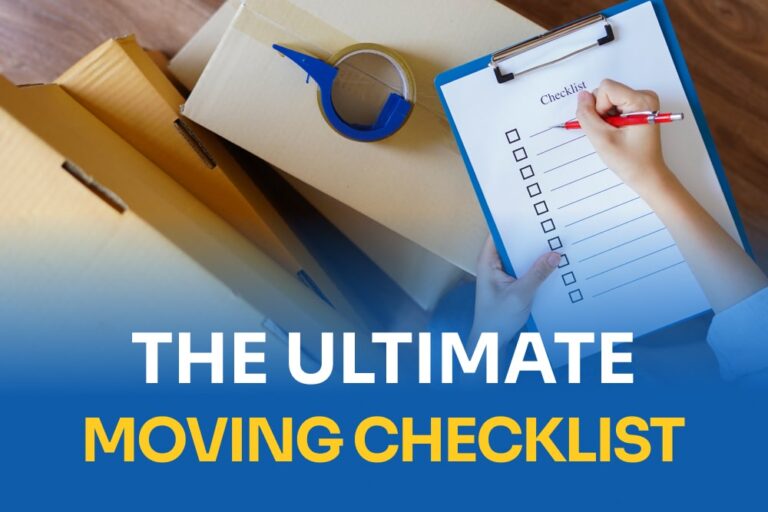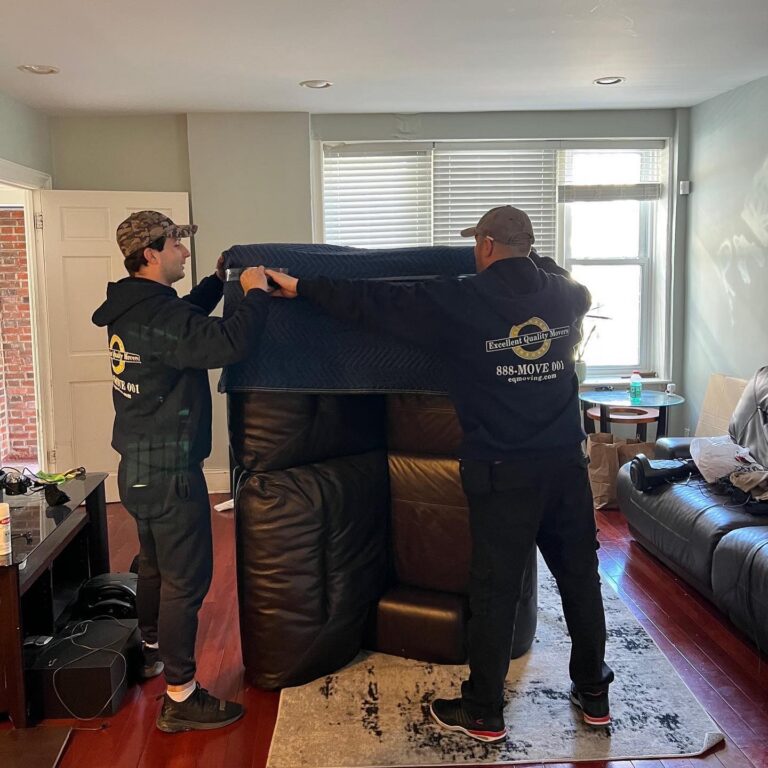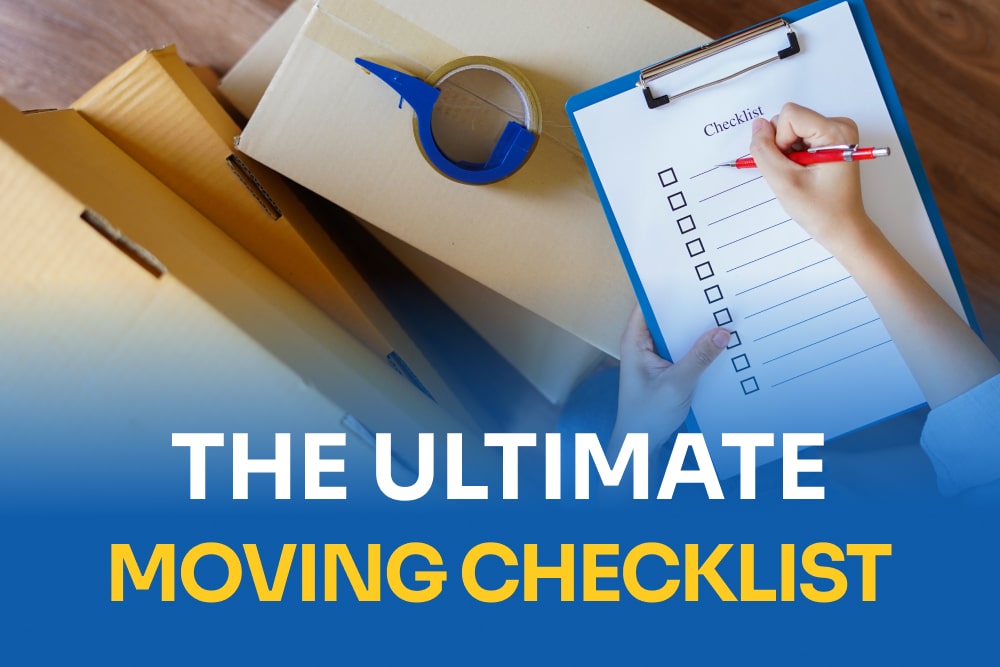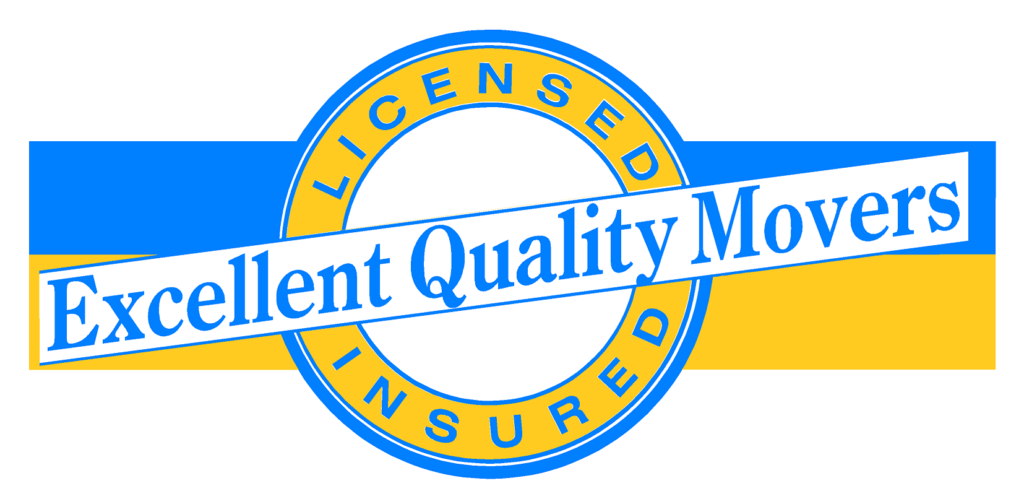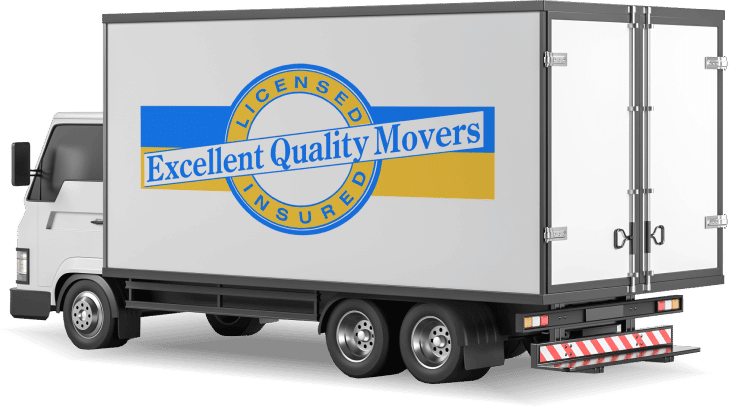Moving Checklist: Your Comprehensive Guide to a Stress-Free Move
Moving can be a stressful experience, but with a comprehensive moving checklist, you can alleviate some of that stress. In addition, a moving checklist can help you keep track of everything you need to do before, during, and after the move. This guide will provide a comprehensive moving checklist covering everything from hiring a moving company to unpacking your belongings in your new home.
Why Do You Need a Moving Checklist?
Planning and Preparation:
A. Start Early
One of the most important aspects of a moving checklist is starting early. Ideally, you should begin planning your move at least eight weeks before the moving date. It will give you ample time to organize, research moving companies, and complete all necessary tasks.
B. Create a Moving Binder
Create a binder or digital folder to keep track of your moving documents. Include a checklist of things to do including estimates, receipts, and any other relevant paperwork.
C. Research Moving Companies
Whether you’re moving across town or the country, research and compare several moving companies. Look for reviews, get quotes, and ask for referrals to end with the best one, like EQ Moving. You can also consider a moving checklist apartment service for specialized apartment moves.
Inventory and Decluttering:
A. Start Early
Create a moving house checklist of all your belongings. It will help you determine what to keep, sell, or donate. You can also use this checklist as a reference while getting moving estimates and settling insurance claims.
B. Declutter
Moving is an excellent opportunity to declutter and get rid of items you no longer need. Also, donate or recycle things that you don’t want to take with you.
Packing:
A. Gather Supplies
Prepare for packing by gathering boxes, tape, bubble wrap, paper, and markers. You can purchase or find free supplies from local stores or online marketplaces. However, if you hire a professional moving company for packing services, it will have all the supplies ready to cater to your needs. Check out the packing services of ‘EQ Moving’ company here: Packing Services
B. Create a Moving Packing Checklist
Develop a moving packing checklist to ensure nothing is left behind. Organize items by room and label boxes with their contents and destination.
C. Pack Non-Essentials First
Begin packing items you don’t use daily, such as seasonal clothing, books, and decor. Save essentials like toiletries and kitchenware for last.
Address Changes and Notifications:
A. Update Your Address
Before moving, update your address with the post office, banks, credit card companies, and any subscription services you use.
B. Notify Important Parties
Inform your employer, healthcare providers, schools, and insurance companies of your upcoming move.
Preparing Your New Home:
A. Moving into a New House Checklist
Before moving into your new home, create a checklist for moving a new house. It should include cleaning, setting up utilities, and changing locks.
B. Schedule Necessary Services
Arrange for cable, internet, and phone services to be connected before you arrive.
C. Plan for Pets and Children
Consider arranging childcare or pet care on moving days to minimize stress for you and them.
Moving Day:
A. Moving Out Checklist
On the day of the move, follow a moving-out checklist to ensure everything is packed and ready to go. It should include turning off appliances, taking out the trash, and doing a final walk-through.
B. Moving Out for the First Time Checklist
If you’re moving out for the first time, you must make a checklist to ensure a successful transition. It should include budgeting for rent and utilities, purchasing household essentials, and learning basic home maintenance skills.
C. Moving In Checklist
Once you arrive at your new home, follow a moving-in checklist to unpack efficiently. Start with essential items and gradually work through the rest of your belongings. You can also have a look at the moving services of a renowned professional moving company to lessen your burden.
Post-Move Tasks:
A. Moving Checklists Follow-Up
Once you’re settled in, review your moving checklists to ensure you have completed all the tasks. It may include submitting the change of address forms, transferring medical records, and updating your driver’s license.
B. Moving Out Checklist Completion
After you’ve moved out, complete your moving-out checklist by canceling or transferring utilities, returning keys, and forwarding mail to your new address.
C. Moving House Checklist Review
After the move, take the time to review your moving house checklist to identify any lessons learned or improvements for future moves.
Moving into a New House Checklist for Safety:
A. Check Smoke and Carbon Monoxide Detectors
Ensure all detectors are functional and replace batteries if necessary.
B. Create an Emergency Plan
Develop a plan for evacuations and emergencies, including escape routes and meeting points.
C. Review Safety Features
A checklist for moving into a new house must include familiarizing yourself with your home’s electrical panel, water shut-off valve, and security features.
Apartment Moving Checklist for Community Living:
A. Get to Know Your Neighbors
Introduce yourself to your neighbors and consider attending community events.
B. Understand Apartment Rules and Regulations
Moving into a new apartment checklist must include reviewing your lease and building rules to ensure compliance and avoid any conflicts.
C. Establish a Relationship with Management
Connect with your building manager or landlord to promptly address any concerns or maintenance issues.
Moving into a New Home with a Family:
A. Family Moving Checklist
Create a family-specific moving checklist that includes packing essentials, planning for children’s needs, and establishing new routines.
B. Childproof Your New Home
Ensure your new home is safe for children by installing safety latches and outlet covers and securing furniture.
C. Enroll Children in School
Register your children in their new school and provide necessary documents, such as immunization records and transcripts.
Moving with Pets:
A. Pet Moving Checklist
Develop a pet moving checklist to cover your furry friend’s needs, such as updating their ID tags, securing a pet carrier, and scheduling vet visits.
B. Pet-Proof Your New Home
Check for any hazards to your pet, such as exposed wires or toxic plants, and create a safe space for them to explore.
C. Help Your Pet Adjust
Give your pet time to adjust to their new environment by providing everyday items, maintaining routines, and offering plenty of attention and comfort.
Budgeting for Your Move:
A. Moving Expenses Checklist
Create a moving expenses checklist to keep track of all the costs associated with your move. It can include hiring movers, packing supplies, travel expenses, and additional services.
B. Saving for Your Move
You can set aside funds to cover your moving costs by planning your move well in advance. Consider creating a moving budget to help you allocate your resources effectively.
C. Cutting Costs
Look for ways to save on moving expenses, such as sourcing free packing materials, comparing quotes from multiple companies, and moving during off-peak seasons.
Moving for Work:
A. Job Relocation Checklist
If you’re moving for a new job, create a job relocation checklist that includes updating your resume, researching your new city, and finding temporary housing.
B. Communicate with Your Employer
Keep your employer informed about your move and ask about any relocation assistance or resources they may offer.
C. Settling into Your New Job
Once you’ve moved, focus on acclimating to your new work environment and building relationships with your colleagues.
Long-Distance Moving:
A. Long-Distance Moving Checklist
Create a long-distance moving checklist to address the unique challenges of moving across the country or internationally. It may include researching shipping options, obtaining travel documents, and adjusting to time zone changes.
B. Choosing a Long-Distance Moving Company
Select a moving company with experience in long-distance moves and ensure they have the necessary licenses and insurance coverage.
C. Preparing for the Journey
Pack essentials for the trip to your new home, including clothing, toiletries, and important documents. Make travel arrangements well in advance and confirm your itinerary.
International Moving:
A. International Moving Checklist
Develop an international moving checklist to cover tasks such as obtaining visas, shipping belongings, and learning the local language.
B. Research Your Destination
Invest time learning about your new country’s culture, customs, and laws. Familiarize yourself with local resources and expatriate communities.
C. Logistics and Documentation
Ensure your passport is current and gather any necessary documentation, such as birth certificates, marriage licenses, and immunization records.
Preparing for the Unexpected:
A. Emergency Moving Checklist
In the event of an unexpected move, create an emergency moving checklist to streamline the process. It may include securing temporary housing, packing essentials, and notifying important parties of your situation.
B. Plan B
Have a backup plan if your moving process doesn’t go as planned and you face any unexpected delays or issues with your new home.
C. Stay Flexible
Maintain a flexible mindset and be prepared to adapt to any changes or obstacles during your move.
By having a checklist of things to do when moving, you can approach your move with confidence and ease.
Whether you’re moving out for the first time, relocating to a new apartment, or settling into a new house, this comprehensive guide covers every aspect of the moving process. With specialized checklists for various scenarios and a focus on organization and planning, you’ll be well-equipped to handle your move and start your new chapter with a positive mindset.
Remember, the key to a successful move is to start early, stay organized, and utilize the helpful resources and checklists available to ensure a seamless trans ition.
